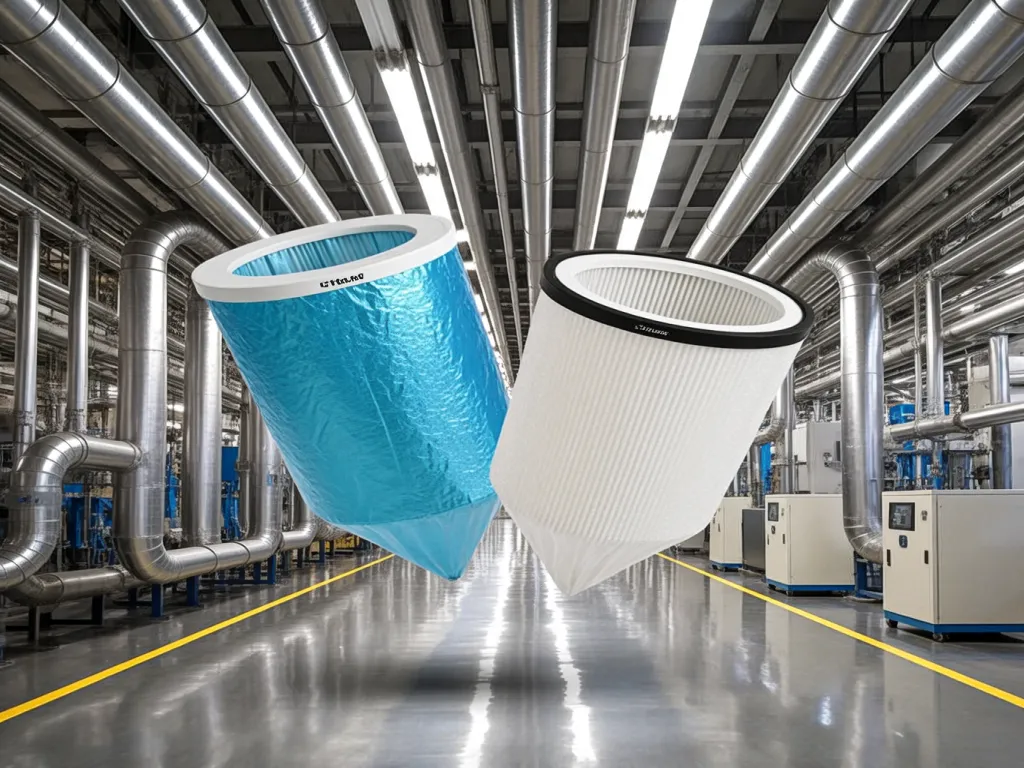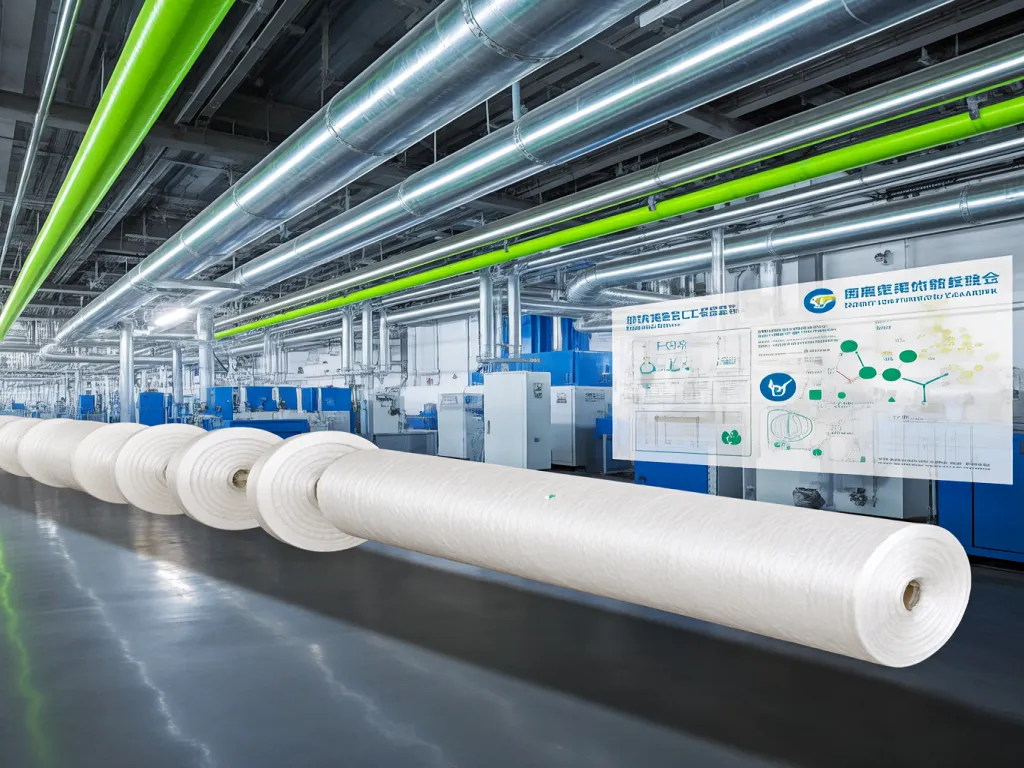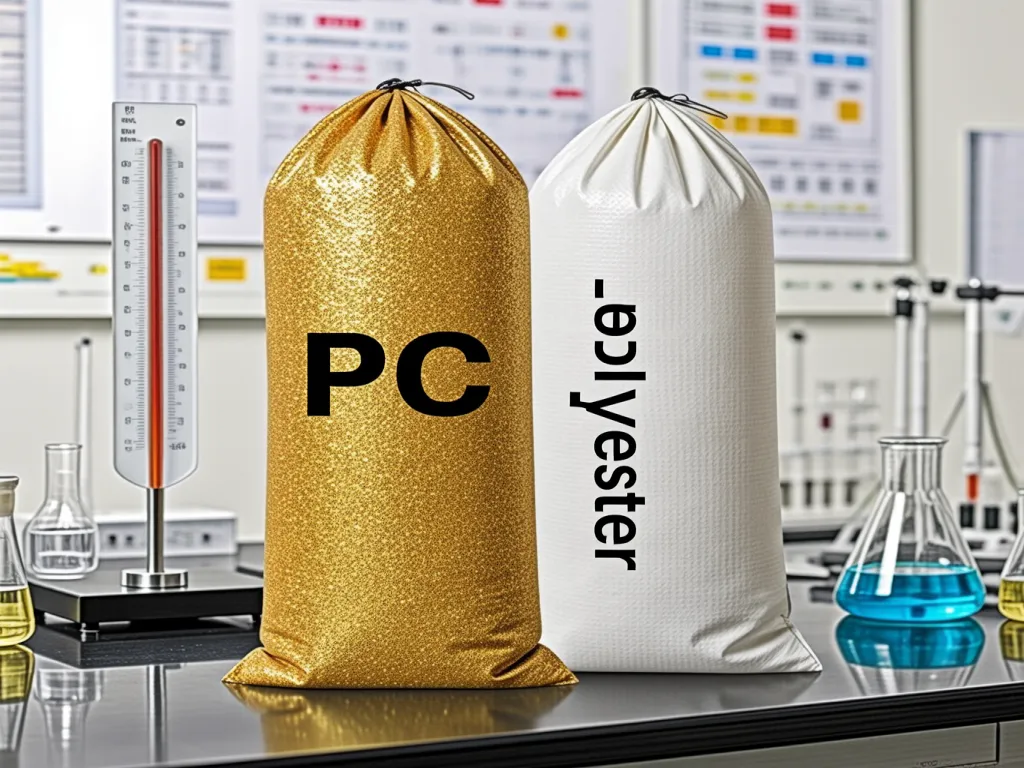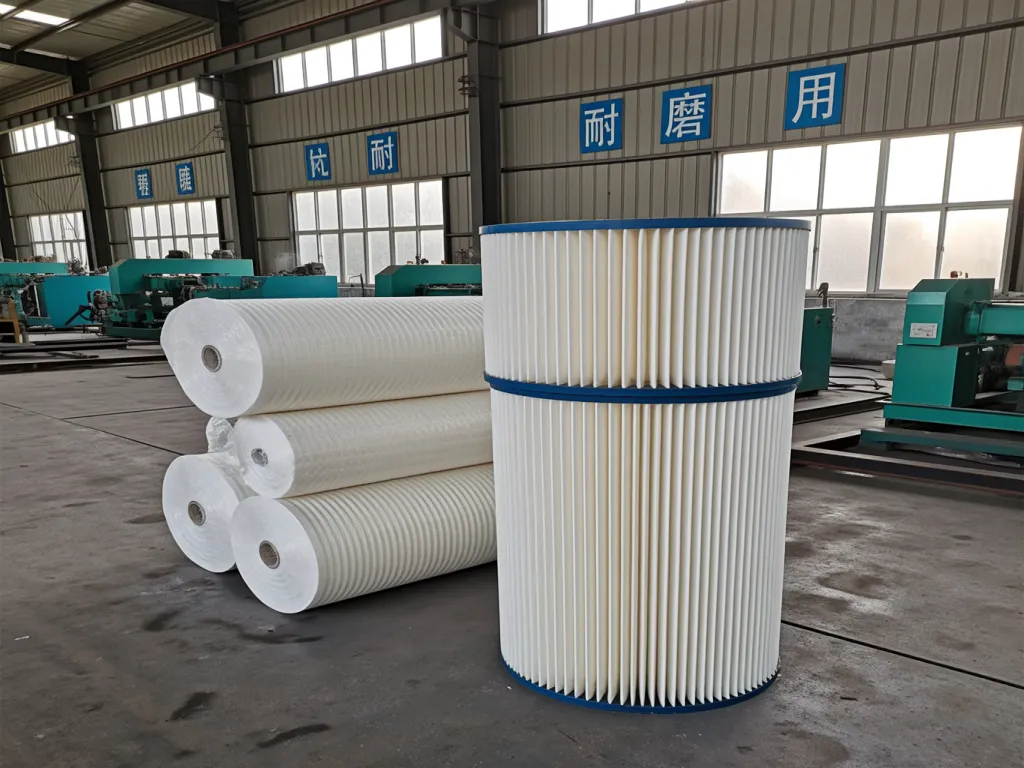Polyester vs Polypropylene: Which Durable Industrial Filter Bag Wins?

When it comes to industrial filtration, choosing the right material for your filter bag can make or break efficiency and cost-effectiveness. Whether you’re a procurement manager, engineer, or maintenance pro, you’ve likely faced the dilemma: polyester or polypropylene for your durable industrial filter bag? Let’s dive into the nitty-gritty of both materials, weighing their strengths and weaknesses to help you make an informed decision. Ever wondered which material truly stands the test of time and tough industrial conditions?

Polyester Fiber Material Analysis: Chemical Stability, Physical Strength, and Industrial Applications
When it comes to selecting a durable industrial filter bag, polyester fiber stands out as a top contender. But what makes it so special? Let’s dive into the nitty-gritty of polyester fiber, exploring its chemical stability, physical strength, and common applications in industrial filtration. First off, polyester fiber boasts remarkable chemical stability. This means it can withstand a wide range of chemicals without degrading or losing its structural integrity. Whether it’s exposure to acids, bases, or solvents, polyester maintains its shape and performance, making it an ideal choice for harsh industrial environments. Imagine a scenario where your filter bag needs to handle corrosive substances daily. With polyester, you can rest assured that your filtration system will remain efficient and reliable over time. Now, let’s talk about physical strength. Polyester fiber is renowned for its high tensile strength, meaning it can resist stretching and breaking under pressure. This property is crucial in industrial filtration, where filter bags are subjected to constant stress from the flow of materials. A durable industrial filter bag made from polyester can handle heavy loads and frequent cleaning cycles without compromising its effectiveness. It’s like having a filter bag that’s built to last, reducing the need for frequent replacements and saving you money in the long run. But what about its applications? Polyester filter bags are widely used across various industries, from chemical processing to food and beverage production. Their versatility stems from their ability to filter out fine particles, dust, and even liquid droplets, depending on the specific design. For instance, in the pharmaceutical industry, polyester filter bags are employed to ensure the purity of products by capturing contaminants. Similarly, in the cement industry, they help control emissions by trapping particulate matter. However, no material is perfect, and polyester has its drawbacks. One notable limitation is its sensitivity to high temperatures. While polyester can handle moderate heat, prolonged exposure to temperatures above its melting point can cause it to deform or even melt. This means that in environments where extreme heat is a constant, polyester might not be the best choice. Additionally, polyester filter bags can be more expensive compared to some alternatives, especially when considering high-performance variants. But when you weigh the pros and cons, the durability, chemical resistance, and overall performance of polyester often outweigh these drawbacks, especially in applications where reliability is paramount. So, is polyester the right material for your durable industrial filter bag? It depends on your specific needs. If you require a filter bag that can withstand chemicals, handle heavy loads, and last a long time, polyester is definitely worth considering. On the other hand, if your operation involves extreme temperatures or you’re on a tight budget, you might want to explore other options. But for most industrial applications, polyester fiber offers a compelling combination of durability, efficiency, and cost-effectiveness.
Chemical Stability of Polyester Fiber
Polyester fiber’s chemical stability is one of its standout features. It’s resistant to a broad spectrum of chemicals, including acids, bases, and solvents. This resistance ensures that the filter bag maintains its structural integrity and filtration efficiency even in harsh chemical environments. For industries like chemical processing or wastewater treatment, where filter bags are exposed to various chemicals, polyester’s stability is a game-changer. It reduces the risk of filter bag failure and ensures consistent performance over time.
Physical Strength and Durability
The physical strength of polyester fiber is another key factor in its popularity as a filter bag material. Its high tensile strength allows it to withstand significant stress without breaking or stretching. This durability is crucial in industrial settings where filter bags are subjected to constant pressure from the flow of materials. Whether it’s handling heavy loads of particulate matter or enduring frequent cleaning cycles, polyester filter bags can take the punishment and keep on performing. This translates to fewer replacements and lower maintenance costs for your filtration system.
Common Industrial Applications
Polyester filter bags find applications in a wide range of industries. Their ability to filter out fine particles, dust, and even liquid droplets makes them versatile. In the food and beverage industry, for example, polyester filter bags are used to ensure product purity by capturing contaminants. In the cement industry, they help control emissions by trapping particulate matter. The pharmaceutical industry relies on polyester filter bags to maintain the cleanliness of production environments. For a more comprehensive look at polyester filter bag solutions, consider exploring our high-efficiency industrial filter bag options. These examples illustrate the broad applicability of polyester in industrial filtration.
Limitations and Considerations
Despite its many advantages, polyester fiber has some limitations. As mentioned earlier, its sensitivity to high temperatures can be a concern in environments where extreme heat is present. Prolonged exposure to temperatures above its melting point can cause deformation or melting of the filter bag. Additionally, polyester filter bags can be more expensive compared to some alternatives, especially high-performance variants. However, when considering the long-term benefits of durability and reliability, the initial investment in polyester may be justified for many industrial applications.

Polypropylene Material Analysis: Exploring Temperature Resistance, Corrosion Resistance, and Cost-Effectiveness, Comparing with Polyester Fiber in Different Industrial Environments
When it comes to selecting the right material for durable industrial filter bags, polypropylene (PP) often emerges as a strong contender. But how does it stack up against polyester fiber, especially in terms of temperature resistance, corrosion resistance, and cost-effectiveness? Let’s dive into the specifics. First off, polypropylene is renowned for its excellent temperature resistance. Unlike some other materials, PP can withstand relatively high temperatures without degrading. Typically, it can handle continuous use at temperatures up to around 200°F (93°C), with short-term spikes even higher. This makes it suitable for a wide range of industrial processes where heat is a factor, such as in certain chemical manufacturing or food processing applications. Now, you might be thinking, ‘What about in colder environments?’ Well, polypropylene also performs admirably in low-temperature settings. It remains flexible and doesn’t become brittle, which is crucial for maintaining the integrity of the filter bag over time. This versatility in temperature extremes is a significant advantage over materials that may struggle outside a narrow temperature range. Moving on to corrosion resistance, polypropylene shines again. It’s highly resistant to a variety of chemicals, including acids, bases, and solvents. This means that in environments where corrosive substances are present, like in wastewater treatment or certain chemical production facilities, PP filter bags can offer long-lasting performance without the need for frequent replacements. In contrast, polyester fiber, while also having good chemical resistance, may not be as robust in highly corrosive settings. It can degrade over time when exposed to certain harsh chemicals, leading to a shorter lifespan and higher maintenance costs. Cost-effectiveness is another area where polypropylene excels. Generally, PP is less expensive to produce than polyester fiber, which translates to lower costs for the end-user. When you factor in its durability and longevity, the total cost of ownership for polypropylene filter bags often comes out lower than for polyester alternatives. This is especially true in industrial environments where the filter bags are subjected to heavy use and need to be replaced regularly. But don’t just take my word for it. Let’s look at some real-world examples. In a cement manufacturing plant, for instance, where the filtration process involves high temperatures and abrasive particles, polypropylene filter bags have been shown to outlast polyester ones by a significant margin. The PP bags withstand the heat and abrasion better, resulting in fewer replacements and lower downtime costs. Similarly, in a chemical processing facility dealing with corrosive substances, PP filter bags have demonstrated superior resistance to chemical degradation, again leading to cost savings over time. Of course, every industrial environment is unique, and the choice between polypropylene and polyester fiber will depend on a variety of factors, including the specific chemicals involved, the temperature range, and the budget constraints. But by understanding the strengths and weaknesses of each material, you can make a more informed decision that will benefit your operation in the long run.
Temperature Resistance of Polypropylene
Polypropylene’s ability to withstand high temperatures without degrading is one of its standout features. It can handle continuous use at temperatures up to around 200°F (93°C), with short-term spikes even higher. This makes it ideal for industrial processes where heat is a constant factor, such as in chemical manufacturing or food processing. Additionally, PP remains flexible in low-temperature environments, preventing brittleness and ensuring the filter bag’s integrity over time.
Corrosion Resistance of Polypropylene
When it comes to corrosion resistance, polypropylene is highly effective against a variety of chemicals, including acids, bases, and solvents. This makes it a great choice for environments with corrosive substances, like wastewater treatment or chemical production facilities. In contrast, polyester fiber, while having good chemical resistance, may not be as robust in highly corrosive settings and can degrade over time, leading to a shorter lifespan and higher maintenance costs.
Cost-Effectiveness of Polypropylene
Polypropylene is generally less expensive to produce than polyester fiber, resulting in lower costs for the end-user. When considering its durability and longevity, the total cost of ownership for PP filter bags often comes out lower than for polyester alternatives. This is particularly true in industrial environments with heavy use and frequent replacements. Real-world examples, such as in cement manufacturing and chemical processing facilities, have shown that PP filter bags can outlast polyester ones, leading to cost savings over time.

Durability Comprehensive Assessment: Actual Cases and Experimental Data Comparison
When it comes to selecting a durable industrial filter bag, the choice of material can make or break your filtration system’s efficiency and cost-effectiveness. Today, we’re diving deep into a head-to-head comparison between polyester and polypropylene filter bags, using real-world cases and hard data to guide your purchasing decision. Let’s start by setting the stage: imagine two identical industrial setups, one equipped with polyester filter bags and the other with polypropylene. Over time, the differences in their performance become starkly apparent. First up, let’s talk about wear rate. Polyester, known for its excellent chemical stability and physical strength, tends to show lower wear rates in environments where abrasive particles are prevalent. For instance, a study conducted in a steel manufacturing plant revealed that polyester filter bags maintained their structural integrity for over 12 months, even under continuous exposure to fine metallic dust. In contrast, polypropylene bags, while cost-effective, exhibited signs of wear, such as thinning and small tears, after just 8 months in the same conditions. Now, onto lifespan. Polyester’s robustness translates into a longer service life. An experiment comparing the two materials in a cement production facility showed that polyester bags lasted an average of 18 months before needing replacement, compared to polypropylene’s 12-month lifespan. This isn’t just about durability; it’s about minimizing downtime and replacement costs, which can significantly impact your bottom line. But what about maintenance costs? Here’s where things get interesting. Polypropylene, being less expensive upfront, might seem like a budget-friendly choice. However, when you factor in the more frequent replacements and potential downtime costs due to premature failures, the total cost of ownership can skyrocket. For example, in a chemical processing plant, switching from polypropylene to polyester filter bags reduced annual maintenance costs by 30%, despite the higher initial investment. Let’s not forget the environmental aspect. Polyester’s longer lifespan means fewer bags end up in landfills, contributing to a more sustainable operation. Plus, its ability to withstand higher temperatures and harsh chemicals makes it a go-to choice for industries where these factors are critical. So, how do you decide? If your operation involves high temperatures, abrasive materials, or requires long-term durability, polyester is your best bet. For a deeper understanding of how polyester filter bags can enhance your filtration system, explore our high-efficiency, durable industrial filter bag solution. It might cost more initially, but the long-term savings in maintenance and replacement costs make it a wise investment. On the other hand, if your budget is tight and your operating conditions are less severe, polypropylene could be a viable option, provided you’re prepared for more frequent replacements. In conclusion, the choice between polyester and polypropylene for your durable industrial filter bag isn’t just about price; it’s about understanding your specific needs, operating conditions, and long-term goals. By considering wear rate, lifespan, and maintenance costs, you can make an informed decision that enhances your filtration system’s efficiency and reduces your overall operational expenses.
Wear Rate Analysis
Polyester’s superior chemical stability and physical strength translate into a lower wear rate, especially in environments with abrasive particles. This was evident in a steel manufacturing plant where polyester bags outlasted polypropylene by several months. The key takeaway? If your operation involves handling abrasive materials, polyester is the way to go.
Lifespan Comparison
When it comes to lifespan, polyester again takes the lead. Its ability to withstand harsh conditions means fewer replacements and less downtime. In a cement production facility, polyester bags lasted 50% longer than their polypropylene counterparts. This extended lifespan not only saves money but also ensures consistent filtration performance.
Maintenance Costs Breakdown
Maintenance costs are a critical factor in any industrial operation. While polypropylene bags are cheaper upfront, their shorter lifespan and higher wear rate can lead to increased maintenance and replacement costs over time. A chemical processing plant saw a 30% reduction in annual maintenance costs after switching to polyester bags, highlighting the long-term savings potential.
Selecting the ideal material for your durable industrial filter bag isn’t just about durability—it’s about optimizing performance and minimizing long-term costs. Through our in-depth comparison of polyester and polypropylene, you now have a clearer picture of which material aligns best with your industrial needs. Remember, the right choice can significantly enhance your filtration system’s efficiency and longevity. So, why wait? Take this knowledge, explore our range of high-quality filter bags, and make the switch to a more durable, cost-effective solution today. What other industrial filtration challenges are you looking to solve next?

